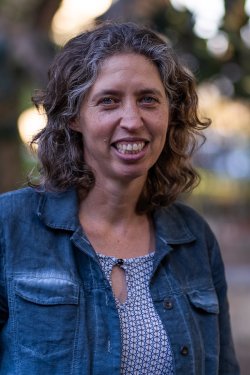Noam Stern-Ginossar
2022 Israel Award Winner — Faculty

Current Position:
Associate Professor
Institution:
Weizmann Institute of Science
Discipline:
Microbiology

Current Position:
Associate Professor
Institution:
Weizmann Institute of Science
Discipline:
Microbiology
Recognized for: Developing groundbreaking analytical tools to study viral gene regulation in cytomegalovirus. These tools include the use of ribosome profiling to generate high resolution maps of the genome, and have also been applied to characterize the genome of SARS-CoV-2, the virus that causes COVID-19.
Areas of Research Interest and Expertise: Virology, Genetics & Genomics, Microbiology, Genetic Sequencing
Previous Positions:
BSc, The Hebrew University
MSc, The Hebrew University (Advisor: Ofer Mandelboim)
PhD, The Hebrew University (Advisor: Ofer Mandelboim)
Postdoctoral Fellow, University of California San Francisco, USA (Advisor: Jonathan Weissman)
Research Summary:
The devastating consequences of the SARS-CoV-2 pandemic and the ongoing emergence of viral variants have made clear the importance of understanding viral infection biology at the molecular level. Viruses like SARS-CoV-2 are submicroscopic parasites that contain only genetic blueprints that encode the ability to hijack metabolic and reproductive machinery from the host’s cells in order to survive. Investigating the genomes contained within viruses, and discovering what proteins they encode, is critical to predict the function of viruses and how they will interact with the host’s cells.
Noam Stern-Ginossar, PhD, has developed revolutionary strategies to decode the viral genome of human cytomegalovirus (CMV), revealed how it is reactivated after periods of dormancy in the body, and discovered basic principles of virus-host interactions. CMV, a herpesvirus, infects the majority of the world's population and can lead to severe diseases in newborns and immunocompromised adults. In order to characterize CMV’s genome, Stern-Ginossar applied a technique called deep sequencing, wherein she sampled a specific piece of the host machinery used for viral reproduction—the ribosome—to identify fragments of viral genome (RNA). Results from these sequencing experiments reveal which proteins are encoded from the RNA. This method, termed "ribosome profiling", has been used to reveal hundreds of previously undiscovered, virus-produced RNAs that can regulate the production of proteins in the host cell. In 2020, Stern-Ginossar applied this technology to rapidly characterize missing fragments of the SARS-CoV-2 genome.
"I am honored to join the Blavatnik Award laureates, a selected group of researchers that are tackling major scientific problems. These last two years have been challenging both for me and for many in my group, so obtaining this prestigious recognition is uplifting and encourage us to continue with our quest. We strive to provide novel insights into virus-cell interactions and to use viruses as a platform to reveal basic molecular principles."
Key Publications:
Other Honors:
| 2019 | The Research Council Award, Weizmann Institute of Science |
| 2018 | Young Investigator Program, EMBO |
| 2016 | “40 under 40” Most Innovative Young Professionals in Israel, MARKER-Israel financiial newspaper |
| 2014 | The Clore Prize for Outstanding New Faculty Appointment, Weizmann Institute of Science |
| 2014 | The Alon Scholarship, Israel council for higher education |
In the Media:
The New York Times – The Coronavirus Unveiled
The Times of Israel – New coronavirus proteins found by Israeli lab, potentially helping drug efforts